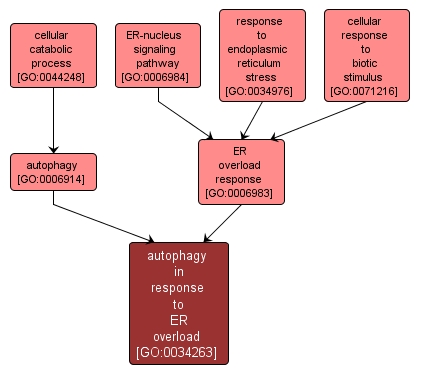GO TERM SUMMARY
|
| Name: |
autophagy in response to ER overload |
| Acc: |
GO:0034263 |
| Aspect: |
Biological Process |
| Desc: |
The process by which cells digest parts of their own cytoplasm in response to the accumulation of misfolded proteins in the endoplasmic reticulum. |
Synonyms:
- autophagy in response to ER stress
- autophagy in response to endoplasmic reticulum overload
|
|

|
INTERACTIVE GO GRAPH
|














